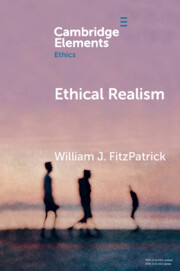Ethical realists hold (i) that our ethical concepts, thoughts, and claims are in the business of representing ethical reality, by representing evaluative or normative properties and facts as aspects of reality, and (ii) that such representations are at least sometimes accurate. Non-naturalist realists add the further claim that ethical properties and facts are ultimately non-natural, though they are nonetheless worldly. My aim is threefold: to elucidate the sort of representation involved in ethical evaluation on realist views; to clarify what exactly is represented and how non-naturalism comes into the picture for non-naturalists; and to defend worldly non-naturalism against some objections. The first question addressed is how we should model evaluation on any realist view, which should in turn guide the identification of which properties and facts are credibly regarded as ‘evaluative’ ones. Then the question is: what role might non-natural properties and facts play, and how are they related to what is represented in ethical evaluation? Once that is clear, we will be in a position to answer certain objections to non-naturalist realism from Jackson, Gibbard, Bedke, and Dreier. I argue that the objections all mischaracterize the role played by non-natural properties and facts on plausible versions of non-naturalist realism.


